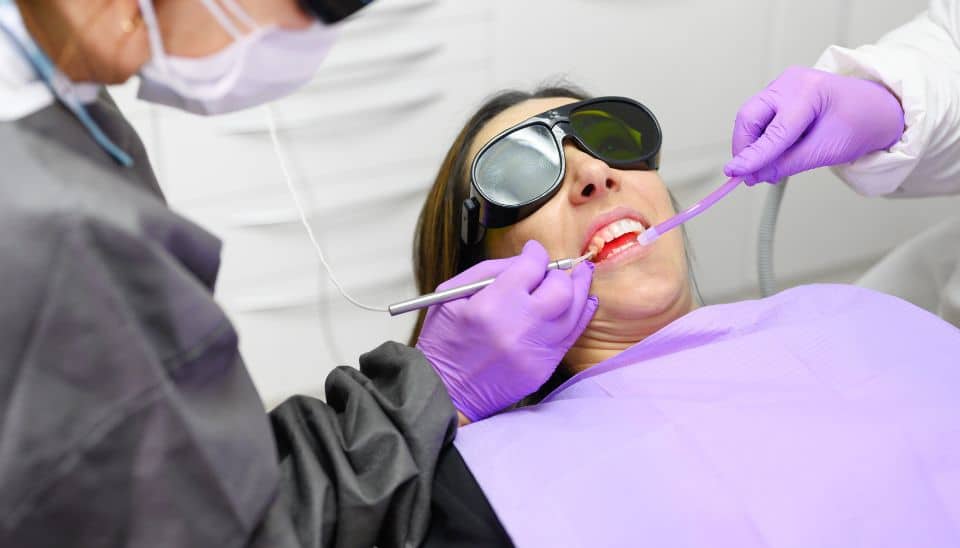Laser Dentistry - Soft Tissue Dental Procedures
Laser technology has enabled dentists to provide less invasive treatment for many dental procedures, both preventative and restorative. Lasers, as you may already know, are focused light beams that are particularly good at removing small amounts of tissue. It has been widely used in the treatment of eyes, and other parts of the body, and is increasingly becoming more commonplace in dental treatments too.
What procedures can laser dentistry be used for?
Hamilton Dental Centre has its own NV Microlaser which is a dental diode laser (or soft tissue laser) that can be used for many different soft tissue procedures involving oral soft tissue surgery.
These include sulcular debridement of diseased fibrous gum tissue (for instance, excision and biopsy); gingivectomy; gingivoplasty; lesion (tumour) removal; fibroma removal; tissue retraction (troughing); aphthous ulcers; gingival hyperplasia (excision and recontour); crown lengthening; operculectomy; frenectomy; and photocoagulation.
The NV Microlaser may be used for periodontal disease in procedures including laser soft tissue curettage; laser removal of diseased, infected, inflamed, or necrosed soft tissue within the periodontal pocket; removal of highly inflamed edematous tissue affected by bacteria penetration of the pocket lining; and junctional epithelium.
Whilst all these treatments may sound confusing, our team here at Hamilton Dental Centre will be able to talk you through the treatments that are available using our in-house laser and whether this is the best treatment for your dental care.

What are the benefits of laser dentistry?
One of the main benefits of laser dentistry is that it is a form of dental care that can improve oral health in a minimally invasive way compared to traditional methods of treating things like gum disease, the reshape of gums for gummy smiles, cold sores, teeth whitening etc.
It is also often a cleaner way of working for dentists as laser dentistry promotes blood clotting and is naturally sterilising. It’s also incredibly precise which reduces the risk of damaging neighbouring teeth. All in all, it means that recovery time is typically shortened.
Is laser dentistry painful?
One of the big appeals of laser dentistry is that it is a comparatively less painful way of practising than conventional means. Because (as previously mentioned) it is minimally invasive and in some procedures, the anaesthetic can be omitted altogether. Some patients even describe it as pain-free! Your dentist will be able to advise you about the likely sensations for your given procedure.
Is laser dentistry expensive?
Laser dentistry is a relatively new technology and practice that sometimes comes at a premium. However, the benefits described above (of quicker recovery time) also often mean fewer visits are required for certain laser procedures. This has a knock-on effect resulting in less cost in total. The cost of procedures does vary and our dentist will be able to advise on costs for your specific circumstances.
Talk to the team today about laser treatments and discover how lasers work to resolve dental issues here in New Zealand.
Laser Dentistry FAQs
Want to find out more?
Request an appointment or drop us a line today.
You Might Also Be Interested In
Site map
Services
Contact Us
T: 07 854 8905
E: info@thehdc.co.nz
3/111 Thomas Road,
Rototuna, Hamilton
copyright © 2025 Hamilton Dental Centre | Credit Terms | Web development by Digital Hothouse


